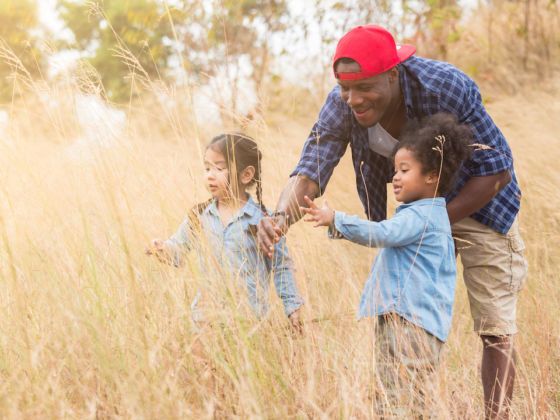MY EIGHT-YEAR-OLD DAUGHTER went on her first plane trip at eight weeks. My six year old son has been to Mexico six times. As a family, we take three or four plane trips a year, not to mention several weekend getaways. We’ve traveled by plane, train, houseboat, ferry, and car (15+ hours from Colorado to California; thank God for portable DVD players).

On our vacations, my kids have come down with croup and motion sickness (read: vomit at 30,000 feet). They’ve been stung by jellyfish. They’ve gotten freakish blistery sunburns after sticking their hands in cups of lemonade and then playing on the beach (something about the strength of citrus south of the border…).
But my children have also been exposed to different cultures, eaten varied foods, learned important travel etiquette (You can only ask “Are we there yet?” once a day; Don’t kick the plane seat in front of you.), and, most importantly, spent time with Mom and Dad.
To me, that’s what family vacations are all about—no work, no school, no computer, no housework, no errands, no carpooling… just a focus on the family.
It doesn’t matter if we’re jumping from bed to bed in a $39-a-night hotel room in Nevada, eating lobster in New England, building sand castles in Hawaii, or standing in line at Sea World; we’re together, we’re having fun, we’re—dare I use a couple of the most over-used terms in parenting today?—bonding with some good, old-fashioned quality time.
And I love it.
Start Them Young
If you’re expecting a child and wondering whether toting a baby along on your backpacking adventures through Europe is going to cramp your style, I’m here to tell you it will.
The concept of independent travel as you know it will change drastically when you’ve got an infant strapped to your chest and you’re touring the Louvre, sampling tapas in Spain, or admiring the scenery in Ireland.
But don’t let that stop you!
In fact, the baby stage is a brilliant time to travel, whether it’s an overseas trek or a weekend trip to Grandma’s, since infants are so portable and they sleep in front-packs or strollers (all the better for enjoying a quiet café meal, just the two of you).
Babies also make great ambassadors, especially in foreign countries where you don’t know the language. Young children are magnets for friendly waitstaff, shopkeepers, and other kids.
If you do plan to raise worldly children, you may as well get them accustomed to the concept of different time zones, trying new foods, and sleeping in strange beds early in their lives.
You just need to keep a few things in mind:
Take it slow.
The pace of your days will decrease considerably when you need to take into account diaper changes, toddler naps, lengthy meals (“Just one more bite of banana, please!”) and other detours for kid fun.
Trying to hit three restaurants, two museums, a park and a shopping area in one day with a child in tow will be a frustrating exercise at best. Think about what you’d have done before kids, and then cut your itinerary in half.
Be flexible.
Recognize that your already shortened itinerary just might be thrown out the window if you wake up to a cranky preschooler or a baby who has developed diaper rash overnight. Travel with kids is an exercise in “going with the flow.” Rigid schedules that don’t take into account the uncertain nature of young children just aren’t going to work anymore.
Strike a balance.
On our family trips, we remind the kids that we’re all in this together and we’re going to do some things that appeal more to Mom and Dad, and some activities that are just for them.
Since they were toddlers, we’ve planned days that might include a morning at a playground or a visit to the make-your-own-sundae place. You can use these kid-focused activities to “buy time” for taking a hike, hitting local stores, and eating at a sophisticated sit-down restaurant.
This teaches children to be accommodating and try new things – things they may actually like!
Reap the benefits.
Bringing your children along can mean extra work and extra expense, but the benefits are undoubtedly worth it. As they grow older, and life at home is filled with school and work obligations, escaping on vacation together is one way to reconnect as a family.
Once they’re school-age, they’ll be introduced to different cultures and foods, learning so much more than if they’d simply read about the locales in textbooks.
Plus, family trips help create amazing memories. Years and even decades after family vacations, your children will still be able to tell funny stories about the time that Dad tried surfing in Hawaii, or when Grandma climbed the Leaning Tower of Pisa.
Introduce the concept of traveling to your young children now, and they’ll grow up understanding that there is a huge world outside of their hometown. They’ll have firsthand experiences that they can take with them to college and beyond, and then pass down their love of travel to their own children and grandchildren!
COMMUNITY CONNECTION
For more on families and travel, check out Six in the World: One Family’s Adventure Across Six Continents, Why I Disobeyed My Family and Traveled the World, or 10 Reasons to Travel with your Parents as an Adult.